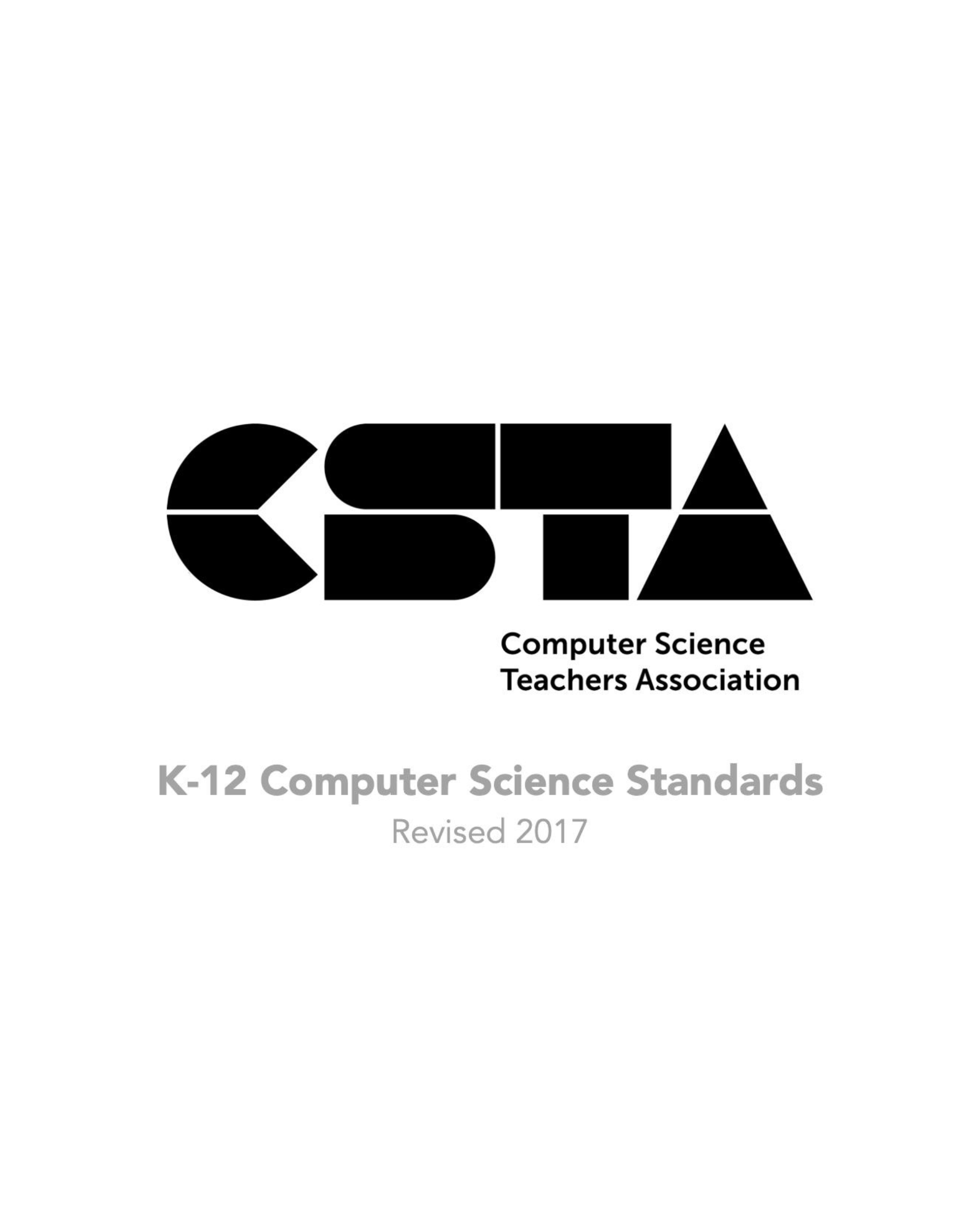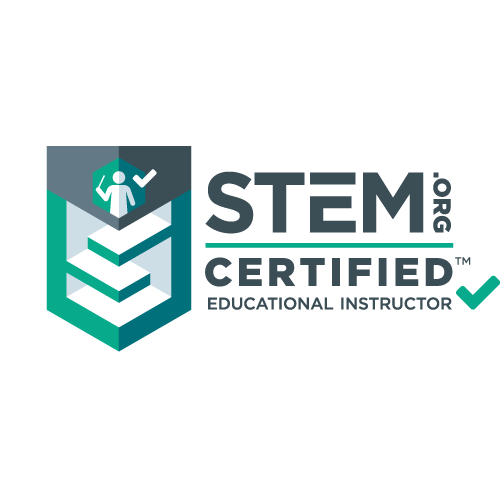Standards Aligned Curriculum
Our Coding, AI and Robotics syllabus offers comprehensive course pathways aligned with several International and National standard frameworks across grades K-12. Our curriculum engages students to explore and learn coding, AI and Robotics through standards-aligned lessons.

Computer Science Teachers Association
The Computer Science Teachers Association (CSTA) is a professional association whose mission to “empower, engage and advocate for K-12 CS teachers worldwide.”
It supports and encourages education in the field of computer science and related areas. Started in 2004, CSTA supports computer science education in elementary schools, middle schools, high schools, higher education, and industry. It sponsors the Computer Science Honor Society.

International Society for Technology Education
ISTE stands for International Society for Technology in Education. It is a non-profit organization that aims to promote effective integration of technology in education.
The society provides resources, professional development, and advocacy for educators, researchers, and policymakers to enhance education through the strategic use of technology. Founded in 1979, ISTE has over 100,000 members from more than 70 countries, working together to reimagine education and create a brighter future for all learners.

National Education Policy
National Education Policy 2020 is the first education policy of the 21st century and aims to address the many growing developmental imperatives of our country.
According to NEP, Curricular Integration of Essential Subjects, Skills, and Capacities sections 4.23 and 4.25:
Certain subjects, skills, and capacities should be learned by all students to become good, successful, innovative, adaptable, and productive human beings in today’s rapidly changing world. In addition to proficiency in languages, these skills include: scientific temper and evidence-based thinking; creativity and innovativeness; sense of aesthetics and art; oral and written communication; health and nutrition; physical education, fitness, wellness, and sports; collaboration and teamwork; problem solving and logical reasoning; vocational exposure and skills; digital literacy, coding, and computational thinking!
It is recognized that mathematics and mathematical thinking will be very important for India’s future and India’s leadership role in the numerous upcoming fields and professions that will involve artificial intelligence, machine learning, and data science, etc. Thus, mathematics and computational thinking will be given increased emphasis for students, starting with the foundational stage, through a variety of innovative methods, including the regular use of puzzles, games and activates involving coding that make mathematical thinking more enjoyable and engaging.

Central Board of Secondary Education
The CBSE (Central Board of Secondary Education) has introduced coding and AI (Artificial Intelligence) as a part of its curriculum for students from Class 6 to Class 12. This initiative aims to develop coding skills and an understanding of AI concepts in students, preparing them for a future where technology plays a vital role.
The curriculum includes topics such as programming languages like Python, Java, and HTML, as well as AI concepts like machine learning, neural networks, and natural language processing. This integration of coding and AI is expected to enhance students' problem-solving skills, creativity, and critical thinking.

Indian Certificate of Secondary Education
The ICSE curriculum for coding and Artificial Intelligence (AI) is designed to introduce students to the fundamental concepts of computer programming and AI. The curriculum focuses on developing problem-solving skills, logical thinking, and programming techniques using languages like Python and Java.
Students also learn about AI concepts, including machine learning, natural language processing, and data analysis. The curriculum aims to prepare students for careers in tech and provides a solid foundation for further studies in computer science and related fields.

Next Generation Science Standards
The Next Generation Science Standards (NGSS) are K–12 science content standards, setting expectations for what students should know and be able to do. These standards were developed to improve science education for all students.
Learn about the detailed NGSS Standards Alignment below:
The most effective solution for children to learn Coding, AI & Robotics.
Our fun and exciting 'Learning Arena' actively engages students, ignites passion and curiosity, and excels in delivering outstanding results.
Quick Links
Opening Hours
Centre Opening Hours
- Monday - Saturday
- 9:00 am to 7:00 pm
Students Hours
- Monday - Friday
- After School - 4:00 pm to 6:00 pm
- Saturday - 10:00 am to 4:00 pm
Sunday - 11:00 am to 4:00 pm


